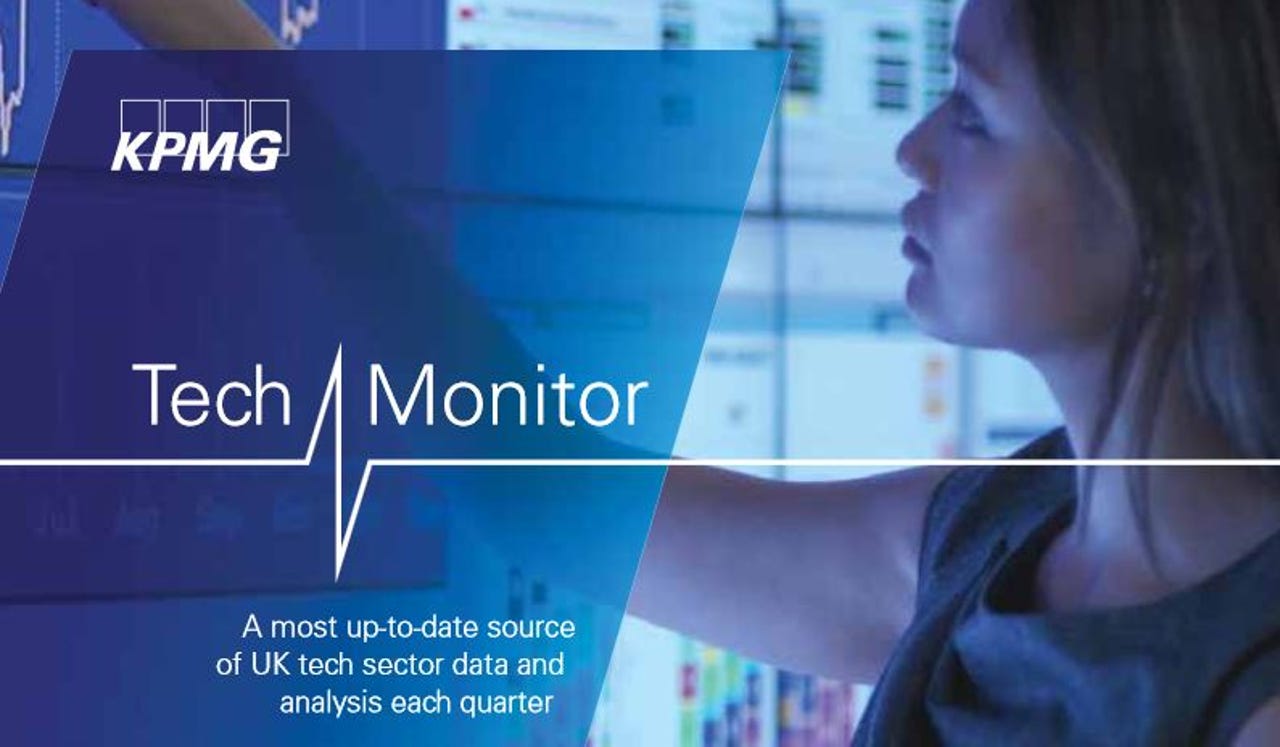London still dominates UK tech sector in KPMG's latest report, but Rotherham is growing fast


"One new tech enterprise has been created every hour for the past five years," according to KMPG's latest Tech Monitor/UK, compiled by Markit. KPMG says tech staff numbers increased in this year's third quarter, and tech firms "express a high level of optimism" for 2016. However, Q3 growth was the weakest for 2.5 years.
The "one per hour" claim is based on the net gain of about 45,000 tech enterprises - 31 percent growth - over the past five years. KPMG adds that the UK Tech sector has "created jobs at a faster and higher rate than the rest of the UK economy," though not in the latest quarter.
KPMG's report also rates Reading "the number one tech cluster in the UK" with 21.7 percent of its companies in technology sectors. In part, this confirms the strength of the M4 corridor, which also includes Swindon, Wokingham, Slough and Hounslow, close to Heathrow airport.
This doesn't mean Reading has more tech companies than other places, such as London or Cambridge. It just means it has a higher proportion of tech companies. A remote village with only two businesses would win this title if one of them was a tech company (50 percent). The UK national average is only one in 12 (8 percent).
Another warning is that the numbers are just numbers, "meaning that micro companies carry the same weight as the largest businesses in the area."
KPMG says that "Warwick saw the fastest increase in tech sector enterprises since 2014 (+28 percent), followed by Hackney (+25 percent) and Rotherham (+21 percent)."
Presumably Warwick benefited from its very strong university while Hackney is part of London's East End and benefited from (relatively) low property prices. Rotherham's success remains a mystery, though presumably it's based on its Advanced Manufacturing Park.
Alas, more than half of the 15 the fastest-growing local authorities, in tech terms, were London boroughs. These were, in order: Hackney, Newham, Islington, Camden, Bexley, Havering, Waltham Forest, and Barking and Dagenham. In addition, Southwark, City of London, Tower Hamlets, Bromley, Hillingdon, Harrow and Hounslow all made the Top 30.
North of Watford (14.4 percent), Cambridge was the strongest area, with 16.7 percent of its businesses being technology based. It's not as good as Hounslow (18 percent) but better than Redbridge (15.8 percent). Apparently, nothing west of Swindon (14.1 percent) beats Swindon, because I can find no mention of Bath or Bristol in the report.
Cardiff (6.5 percent) is doing miserably, compared to the City of Edinburgh (12.0 percent) or, for example, Poole (9.8 percent).
Note that the rankings are not based on web or software development companies but on 16 SICs (Standard Industrial Codes) for "tech sector enterprises". This comprises firms making all kinds of electronics and optical products, including parts and accessories for motor vehicles, all kinds of wireless and satellite communications companies, and biotechnology, among other things. None the less, KPMG says that the SIC for computer programming, consultancy and related activities "contains the largest single amount of tech enterprises".